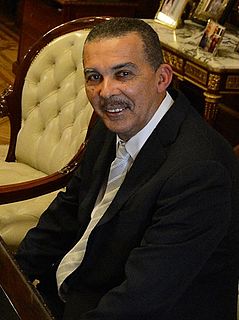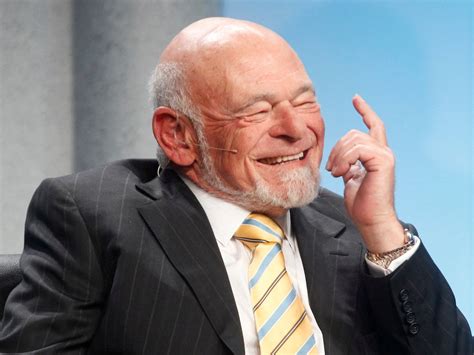A Quote by Joseph Stiglitz
In a globally integrated economy, the biggest challenge is to make sure there is adequate global aggregate demand, achieved through spending, when countries like China feel they must save high levels of dollar reserves to protect against international currency volatility.
Related Quotes
If we are going to go into a global currency fight against countries like China, well, the US has about 75, 76 billion in foreign reserves. They're going to be up against China with 1.7 trillion in US dollars and foreign reserves, so it's not much of a fight there. It could be an interesting fight though.
China's accumulation of reserves is a result of the IMF's mismanagement of the Asian financial crisis a decade or so ago. If countries know they can't rely on the IMF to help them, their best defense is their own reserve cushion. In a time of spreading global recession, too much emphasis on savings in surplus countries like China can impede prospects for global growth.
What there is no dispute about is whether or not China is a currency manipulator. They are a currency manipulator. They actively intervene every single day to keep the value of their currency less than it would be against the dollar than if it floated freely. We think. Even China barely disputes that.
We are privileged that the dollar is the "currency of last resort" and the most important currency in the world. Global commodities are priced in dollars. Central banks in other countries hold great quantities of dollars. The dollar was the safe harbor, the port in the storm during the credit crisis.
Most paper money initially existed as a substitute for gold. That's what gave it value. But right now what gives a currency value is other currency. Most countries hold reserves and the reserves are other currencies. If you are a backing up the euro with the dollar, what's backing up the dollar? I don't think it is going to go to a point where all you have is coins and bars of gold, but I do think that we are going to have to go back to a monetary system based in gold, not based on paper.
We in the Congress have a moral and constitutional obligation to protect the value of the dollar and to understand why it is so important to the economy that a central bank not be given the unbelievable power of inflating a currency at will and pretending that it knows how to fine-tune an economy through this counterfeit system of money.
The powershift began already several years ago, under the Bush administration, when the dollar became very volatile and started declining. That is when China shifted from having almost 100 percent of its reserves in dollars to 75 percent. Some countries went completely out of the dollar. The dollar, for all intents and purposes, lost its special reserve status and people starting talking about a portfolio, or basket, approach as a store of wealth instead of the dollar.
Weaker currencies abroad mean a strong dollar, and a stronger dollar, together with a weak global environment, is a drag on the U.S. economy. So it's important, as it affects overall levels of production and employment in the U.S. There are many domestic industries doing well in the United States, notwithstanding a strong dollar.
As much as with increased exploration new gas reserves can be found, what must be obvious to all is that our oil and gas reserves are not renewable and they are diminishing, and to protect the generations to come, we must engage in nothing short of a radical shift in the diversification of the economy.
My single biggest financial concern is the loss of the dollar as the reserve currency. I can't imagine anything more disastrous to our country. . .you're already seeing things in the markets that are suggesting that confidence in the dollar is waning. . .I think you could see a 25% reduction in the standard of living in this country if the U.S. dollar was no longer the world's reserve currency. That's how valuable it is.
I am against portraying China as the demon of the global community. China has grasped more quickly than other countries what globalization means and what it demands. The country has learned how to use other people's innovations for itself. India, incidentally, is not far behind China in this respect. Both are not nations in the European sense, but rather cultural communities with enormous markets. The challenge of the future is to work out how to deal with that.


































